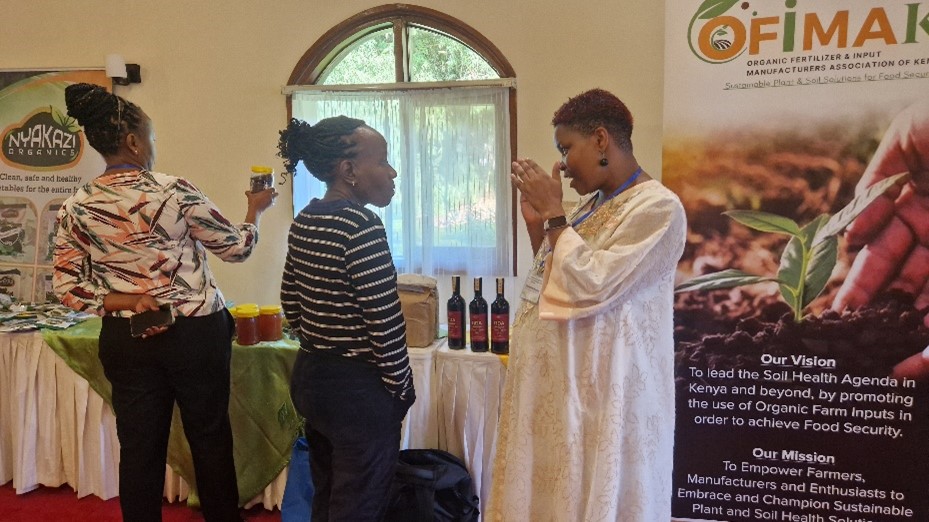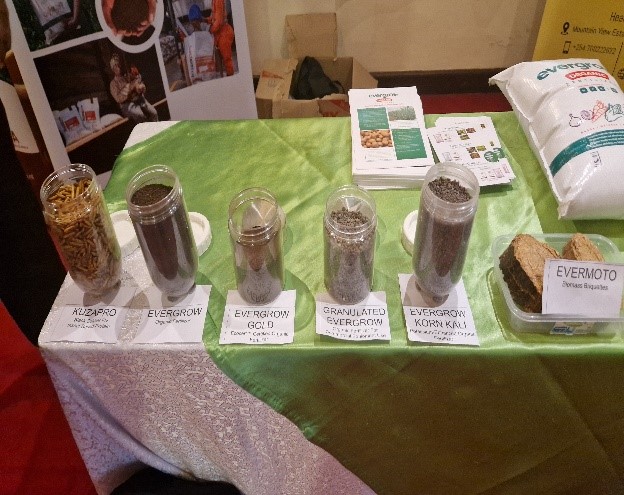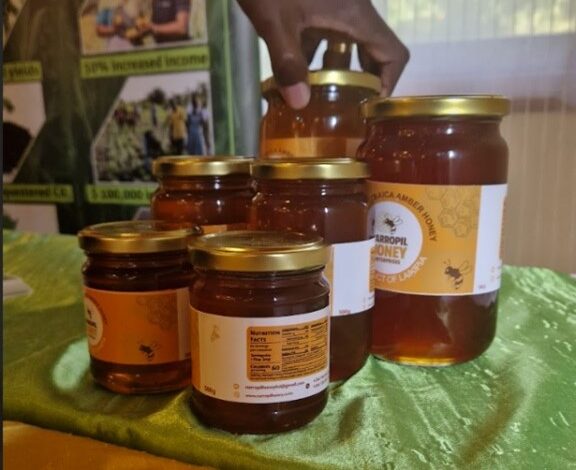Kenya Regenerative Agriculture and Agroecology Convening by Regen10 and ECI Africa
7 November 2024
Group photo: Participants of the Regenerative agriculture and agroecology convening: Photo credit- Regen 10
When it comes to transitioning global food systems from conventional to regenerative approaches, there are many opportunities for a just and sustainable transformation, but it is often hard to take a step back and see the full picture of what we need to achieve together.
Standing before a great elephant, each of us is feeling a piece and trying to picture the whole figure. But it is only in coming together, and sharing our separate pieces of knowledge, that this complete form can be realised.
This was the concept mentioned by a participant at the opening of the Regenerative Agriculture and Agroecology in Kenya Workshop, convened by Regen10 and ECI-Africa in Nairobi, with the goal to drive meaningful action on regenerative food systems through collaboration and knowledge-sharing.
30 representatives from farmer-led organizations, research institutions, indigenous organizations, businesses and other regenerative stakeholders attended the convening, with a diversity of first-hand knowledge and experiences being shared amongst the participants. Together, they shaped a workshop that identified the local needs and opportunities for regenerative and agroecological food systems transformation in Kenya, and built on a common understanding of how shared approaches can effectively enhance sustainability and efficiency within the region.
Advancing sustainable approaches in East Africa
In Kenya, and across East Africa, strategies in regenerative and agroecological approaches are already being developed, with strong examples of multi-stakeholder coordination that can bolster inclusive country policies and accelerate a food systems transition. However, the region faces significant agricultural and environmental challenges, including soil degradation, the impact of climate change, unequal access to resources, and food security issues.
Unique opportunities exist in Kenya to support a transition towards more sustainable and resilient food systems, including the country’s young, hopeful, and innovative population with ambition for change. These opportunities were the focal point of discussion throughout the workshop.
Agroecology is already widely practiced across Kenya, but there is a clear appetite for more robust and context-specific policies and innovations that can support regenerative approaches in the country and in East Africa more broadly. Developments in technology were highlighted as significant drivers in sustainable food production, such as the potential use of AI to streamline supply chains, as well as the storage and accessibility of a growing evidence base sharing the benefits of regenerative agriculture and agroecology.
Knowledge and resource sharing is critical to support transitions to regenerative agriculture, including tools that can help multi-stakeholder actors to develop context-specific approaches. Regen10’s Outcomes-Based Framework provides a ‘North Star’ to help food system actors make decisions that accelerate the transition to regenerative, while allowing the flexibility for them to develop their own context-specific pathways.
One size does not fit all when it comes to agroecological and regenerative approaches, and what works in one region or landscape might not deliver the same outcomes in another. This needs to be considered when developing policies and agricultural approaches, as whilst some policies are already in place, their implementation – particularly at a local-level – may be weak, causing a gap between the development of the policy and its real-world impact.
Learning from regional experts
Local businesses and communities in Kenya are playing a central role in creating an environment where regeneration and agroecology can flourish. This includes Cherotich Rutto, who is the founder of Tawi Fresh – a new digital marketplace solution that directly connects farmers across Kenya with commercial buyers.
Cherotich explained how Tawi Fresh is enhancing market access for smallholders and increasing the power of multi-stakeholder engagement. She spoke about the need to streamline the regenerative agriculture and agroecology supply chain in Kenya, with organizations and businesses working together and leveraging new technology.
Ensuring the inclusivity and equity of women and young people is a vital foundation in the construction of regenerative food systems. Director of the Indigenous Women and Girls Initiative Monicah Yator highlighted the efforts that are underway to empower women and girls in agricultural communities to help tackle issues of food security and gender-based violence.
Bernard Loolasho, Coordinator for Kenya’s Indigenous Youth Network, explained how a coalition of indigenous groups are helping young people develop a stronger understanding of agroecology and regenerative agriculture. This is crucial, given the agricultural and economic opportunities provided by Kenya having such a young population.
At the heart of food systems, and intersecting each of these areas, is also the work of farmers. Rosinah Mbenya from PELUM Kenya emphasised the crucial role that small-scale farmers continue to play in food security through regenerative and agroecological approaches. To help them scale-up these approaches, Rosinah called for more climate finance, particularly to support young people and women; greater stakeholder collaboration to complement interventions; for stakeholders to take a landscape-level approach; and for development partners to invest in long-term funding for agroecological and regenerative approaches.
Elizabeth Nsimadala, President of the Eastern Africa Farmers Federation, also emphasized how farmer-centricity is key to progress and must be elevated in discussions on food systems transformation – a concept Regen10 and ECI-Africa sought to prioritize during the workshop. As well as hearing about the work that is taking place locally, participants also saw agroecological innovation firsthand at the convening’s exhibition, where a diverse range of products and initiatives were on display.

This included banana wine from the Eastern Africa Farmers Federation, organic honey from the Kenya Indigenous Youth Organization, and dried indigenous vegetables from Seed Savers Network. Organic and regenerative fertilizers from Safi Organics and Regen Organics were also on display, which can be produced locally using innovative technology, reducing logistical costs and improving yields for small-scale farmers while supporting local economies.


Next steps
With the elephant taking shape beneath the hands of participants, a clear sense of optimism closed the workshop. However, this was a single, shared step towards a regenerative future defined by those in the room, and those they represent. Protecting and sustaining our food systems is everyone’s responsibility, and we must continue to convene and make connections locally, nationally, and internationally if we are to achieve a resilient and equitable transition.
At the end of the workshop, a volunteer task team was formulated under ECI-Africa’s stewardship to advance the discussions that took place, develop engagement mechanisms with key stakeholders at both sub-national and national levels, and continue to build on the momentum, innovation, and progress around sustainable food production in Kenya and East Africa.
